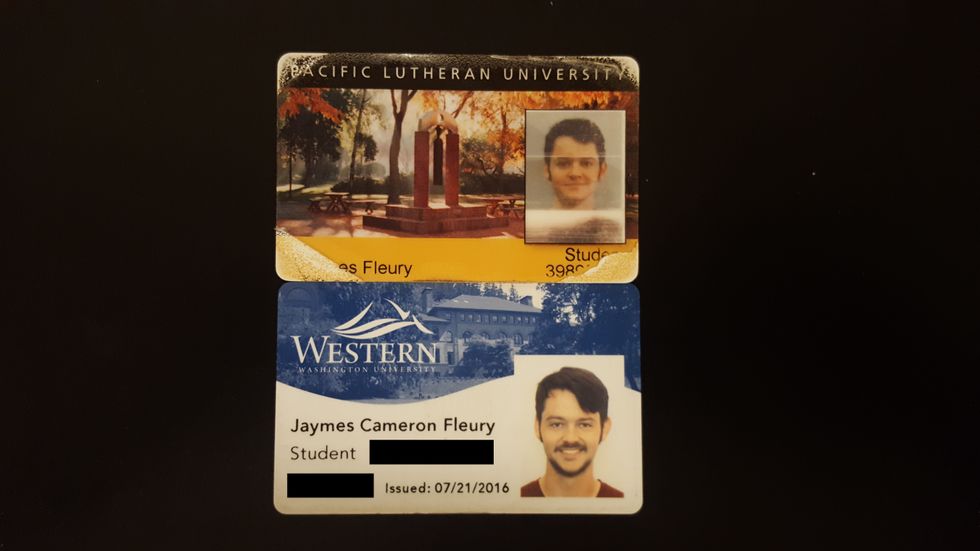Not every plan goes the way you’d hope it would, despite effort or good intentions. Jumping into the four-year commitment right after high school, the plans set by freshmen are usually sketchy at best; a major, minor, meals, parties, trips abroad, all the ways school is sold to kids in school.
Not everyone gets it right their first time. Circumstances unexpected, financial shake-ups, physical or mental illness, social failings, any of these changes can rub away the veneer of one’s university that, for better or worse, is also a kind of new home. The very idea of transferring or even dropping out can feel like reaching for the ejection seat lever.
It was my most difficult decision in college, deciding to leave behind my campus and friends of three years. I left Pacific Lutheran University after a series of bridge burnings and “miscommunications” between myself and the financial aid department. Building stressors and social anxieties had made the simple act of walking across campus seem exhausting.
I had to take a step back and ask myself: “is this place really for me anymore?”
My decision to leave my university after three years was relatively sudden as I applied one day before the application deadline. It felt necessary enough to handle the variables of moving schools and cities while simultaneously finishing my final semester, barely functioning as a student already. What further complicated things was the failing of my computers hard drive and the erasure of three years of work and syllabi?
I had some physical materials and drafts of work, but of course none of the official documentation I would actually need. Only when accepted at Western Washington University, sitting in an advising cubicle, that I realized I had created a perfect storm for myself. There isn’t much anyone can do to prepare for their Transfer Equivalency Report, a jumbled comparison of alphanumeric codes and class titles between the previous school and future alma mater.
Each line is an invitation for arbitration but at the end of the day, the student is subject to the course catalog. To prove my advanced Shakespeare course was “equivalent” to Western’s standards, I would have to present my syllabus to the instructor. Specific class codes for prerequisites are lost in translation, effectively wiping their status away to reveal a few blank credits. I was quickly learning in this meeting that I had not done my adequate research. It didn’t matter that each of my classes was a semester-long or that they were taught at a private institution.
I was the sum of passed and failed classes without traction on within my own major. It was evident that I would have to fight for every credit possible, moving forward in some courses and having to outright repeat general education courses or prerequisites.
Financial and educational concerns aside, there is the physical aspect of moving to a new school. Unless it can be reached by bus or commute, chances are that home will be left behind with school. The search for housing in any college town is daunting. The prices reflect a crash course in gentrification, yet they are rented out instantly by desperate roommates without an option.
Even harder than finding a place to lie down at night is finding a way to keep that roof over your head. That means polishing the resume and searching online for any leads late into the night and between homework and meals. It could mean rolling the dice on Craig’s list ads and hoping for the best. Harder still is leaving the new apartment to meet new people.
You realize how coddled you were as an entering freshman, living on campus with friendships based primarily on proximity and ice-breaker questions. At a time of drought in motivation, transferring schools demands a well of it. Some days, you just have to keep digging.
If I could impart sage advice to anyone needing to find a place during this time in their life, it would be these few things.
Backup your work; whether its drafts of poetry and prose, a research paper, or a syllabus, just save it. Copy that file and save it somewhere else, manila folder, cloud, flash drive, anywhere but one single space.
Get to know your advisors at your new school, they should be able to point the way and hopefully stand in your corner when the time comes.
Know the resources available on campus. With the stress involved in these decisions, I would personally recommend visiting the campus counseling office.
Lastly, I would encourage making the time to go outside and explore your new space.
If feeling out of place was a motivator for the move, staying inside and obsessing over work and studying won’t help. Find the new places you’ll be a regular at and the best spots for a coffee or beer. Celebrate.

















